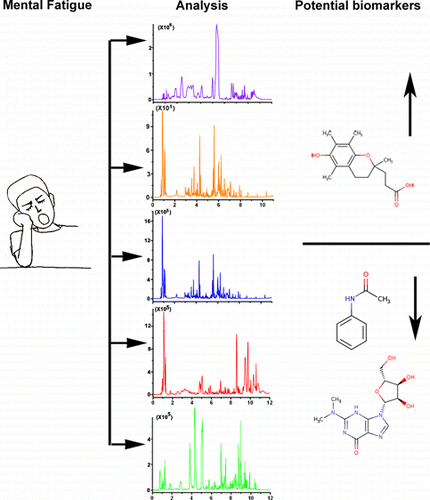Urine test for fatigue could help prevent accidents

Doctors, pilots, air traffic controllers and bus drivers have at least one thing in common—if they're exhausted at work, they could be putting lives at risk. But the development of a new urine test, reported in the ACS journal Analytical Chemistry, could help monitor just how weary they are. The results could potentially reduce fatigue-related mistakes by allowing workers to recognize when they should take a break.
The effects of fatigue have long been recognized and studied as a problem in the transportation and healthcare industries. In the early 2000s, studies published in scientific journals reported that fatigue-related mistakes were linked to thousands of vehicular crashes every year, and were a major concern in patient safety. Weariness can cause anyone on or off the job to lose motivation and focus, and become drowsy. Although very common, these symptoms come with biochemical changes that are not well understood. Zhenling Chen, Xianfa Xu and colleagues set out to determine whether a urine test could detect these changes.
The researchers analyzed urine samples from dozens of air traffic controllers working in civil aviation before and after an 8-hour shift on the job. Out of the thousands of metabolites detected, the study identified three that could serve as indicators of fatigue. Further work is needed to validate what they found, the researchers say, but their initial results represent a new way to investigate and monitor fatigue—and help prevent worn-out workers from making potentially dangerous errors.
More information: Zhenling Chen et al. Application of LC-MS-Based Global Metabolomic Profiling Methods to Human Mental Fatigue, Analytical Chemistry (2016). DOI: 10.1021/acs.analchem.6b03421
Abstract
Mental fatigue is characterized by a reduced capacity for work and a loss of capacity to respond to stimulation and is usually accompanied by a feeling of tiredness and drowsiness. Mental fatigue at work is a serious problem and can raise safety concerns especially in the transportation system. It is believed that mental fatigue is a direct or contributing cause of road and air related accidents and incidents. Psychological studies indicate that fatigue results in reduced work efficiency, alertness, and impaired mental performance. However, its underlying biochemical mechanisms are poorly understood. We hypothesized that the human body is an integrated system, and mental fatigue results in changes not only in psychology but also in biochemistry of the human body. These biochemical changes are detectable in metabolites. We employed global metabolomic profiling methods to screen biochemical changes that occur with mental fatigue in air traffic controllers (ATCs) in civil aviation. A total of 45, all male, ATCs (two batches) were recruited as two mental fatigue groups and 23 executive staff acted as a control group for this study. The volunteers' urine samples were collected before and after their work. The samples were analyzed with liquid chromatography/mass spectrometry equipped with a polar, a weak polar, and a nonpolar column, respectively. Three candidate biomarkers were selected on the basis of statistical significance, coefficient of variance, and compared with data of the three groups. The results suggest that urine metabolites may provide a complete new clue from biochemistry to understand, monitor, and manage human mental fatigue.
Journal information: Analytical Chemistry
Provided by American Chemical Society




















